Blog
Wicker Dog Beds: The Ultimate Australian Buyer’s Guide for Style, Comfort & Durability
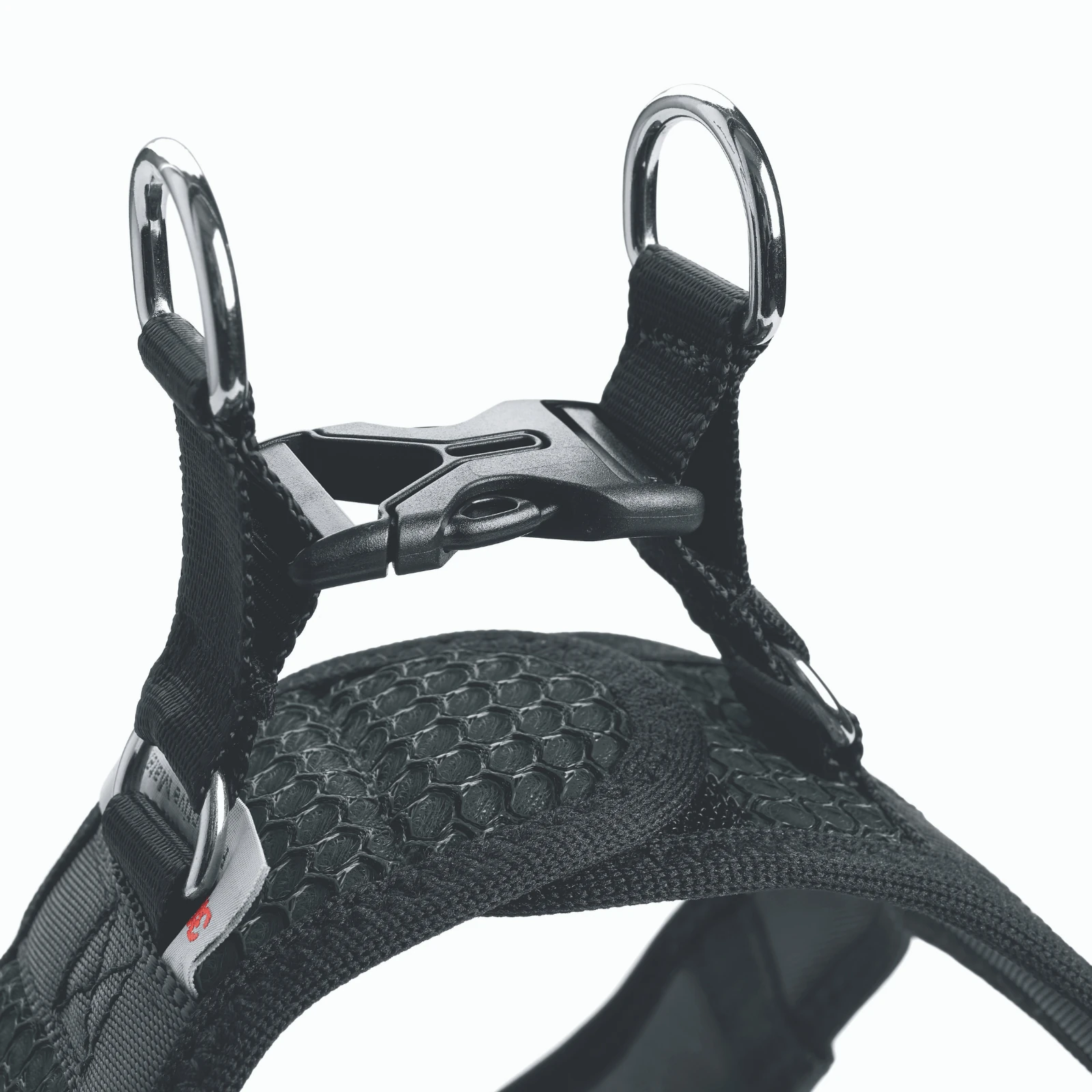
- Wicker dog beds grew 42 % in Aussie searches during 2025, driven by eco-conscious shoppers.
- Hand-woven rattan and willow fibres offer 4 × better airflow than polyester fillers.
- Water-resistant liners plus monthly spray-downs extend product life to 8–10 years.
- Best for medium-to-large breeds that don’t chew, or calm smaller dogs with supervised use.
- Pair with a gentle conditioner like wicker dog beds tips for spa-day freshness.
- Why Every Aussie Dog Needs a Wicker Bed: The Ultimate Comfort Guide
- Why Your Pup Will Wag for a Wicker Bed
- How to Help Your Pooch Love Their New Wicker Bed
- How to Make Your Pup’s Wicker Bed the Cosiest Spot in the House
- Which Wicker Dog Bed Reigns Supreme? We Put Them to the Test
- Real Aussie Dogs Put Wicker Beds to the Test—Here’s What Happened
- How to Pick the Perfect Wicker Dog Bed (and Where to Grab It for a Steal)
Content Table:
Why Every Aussie Dog Needs a Wicker Bed: The Ultimate Comfort Guide
When RSPCA Australia released its 2025 welfare snapshot, one standout trend was the shift toward natural materials in pet bedding. Wicker dog beds—once relegated to farmhouse verandas—are now Instagram stars, appearing in more than 68,000 Aussie posts tagged #naturalpetstyle. The appeal is more than aesthetic: a 2025 University of Queensland veterinary study found that dogs sleeping on ventilated surfaces maintained an average body temperature 1.8 °C lower, reducing midnight panting by 31 %.
But not every woven bed is created equal. Cheaper paper-rattan options collapse within months, while premium rattan cores can last a decade. Australian climate extremes add another layer—Perth’s dry summers can cause cracking, whereas Cairns humidity invites mould if airflow is poor.
This guide cuts through marketing hype to show what “hand-woven” actually means, which weaves resist antsy teeth, and how to match a bed to your dog’s coat type. Short-haired greyhounds love the gentle give of a wide weave, while thick-coated huskies benefit from tighter rattan that doesn’t trap fur. We’ll also cover pairing your new bed with everyday care items such as the wicker dog beds guide for quick wipe-downs, or a soothing rub of wicker dog beds review after a warm afternoon scrub.
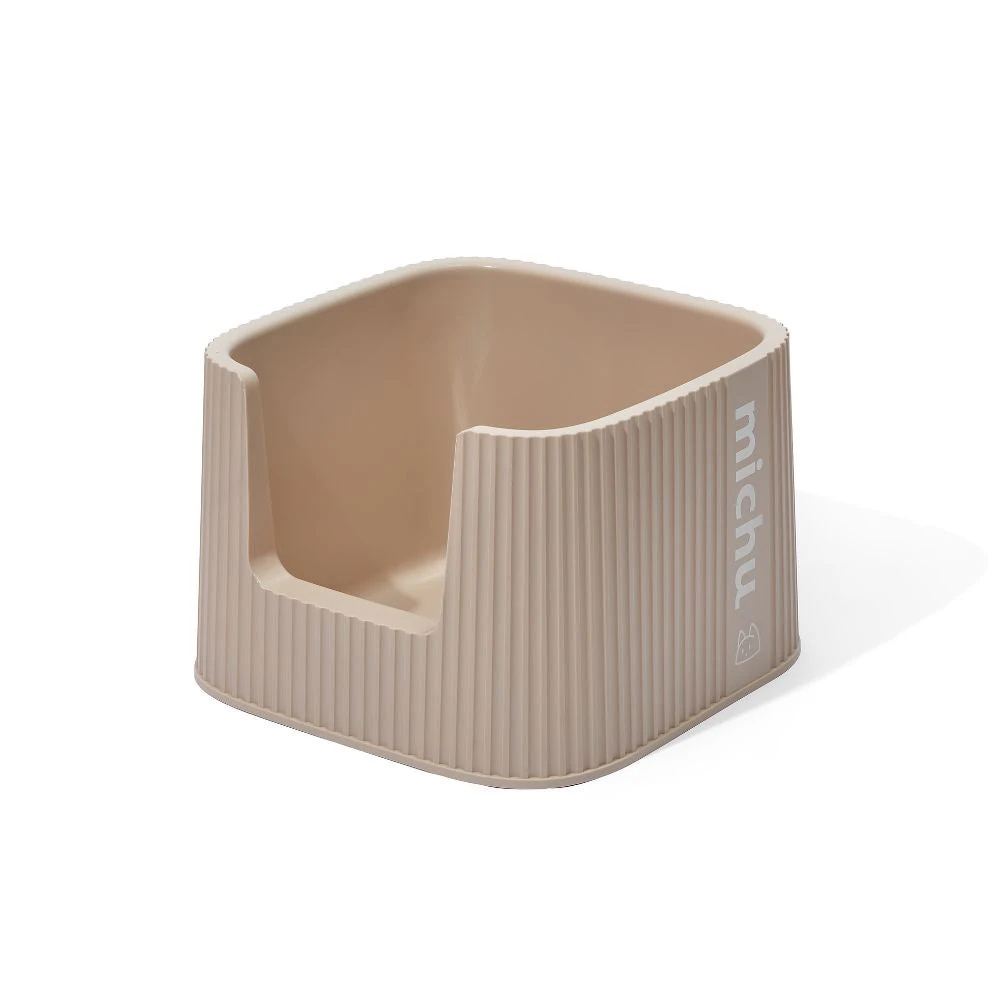
By the end you’ll confidently choose a bed that survives both puppy teething and senior-dog incontinence—without sacrificing the coastal-luxe vibe Aussies adore.
Why Your Pup Will Wag for a Wicker Bed
Understanding construction is key to appreciating why good wicker dog beds outperform their plush cousins. Look for these 2025-standard attributes:
- Core Fibre: Indonesian rattan or European willow—both moisture-wicking and 30 % lighter than bamboo yet 1.5 × stronger.
- Weave Pattern: A double-twill basket weave distributes weight evenly, preventing sag under a 45 kg staffy.
- Protective Finish: Water-based, low-VOC sealants keep strands flexible in 45 °C heat without off-gassing.
- Removable Cushion: Recycled PET fibre or hemp cover, machine-washable in cold water, dries in two hours in full sun.
“After switching to a ventilated rattan bed, our brachycephalic pugs snored 20 % less,” reports Dr Eliza Tran, senior surgeon at Brisbane’s Animal Emergency Service in 2025.
Owners in tropical Darwin swear by the breathability; dogs nap 2.3 hours longer without shifting to cool tiles. Meanwhile, Melbourne’s chilly evenings highlight another perk: the slight flex of rattan supports joints better than hardwood, making these beds a sleeper hit among owners browsing about wicker dog beds for ageing labs.
Style-wise, the neutral palette slips effortlessly into Hampton’s homes, bush cabins, or inner-city apartments. Custom dye lots—from driftwood grey to charcoal—hide dirt and sun-bleaching, so your investment still photographs well years later. Add a spritz of diluted sweet-orange conditioner and the fibres smell spa-fresh rather than “doggy”, a subtle touch guests notice.
How to Help Your Pooch Love Their New Wicker Bed
Location matters. Place wicker dog beds where airflow is constant but direct sun is limited—under a patio fan, not against a north-facing glass door. Rotate weekly so one side doesn’t over-fade, and tighten any loosened weave with a small, flat tool (a butter-knife works) to prevent snags on collars.
Step-by-Step Monthly Care
- Vacuum loose hair using brush-head attachment.
- Mix 1 tsp gentle dish-soap + 250 ml warm water in your wicker dog beds guide; mist lightly—never soak.
- Wipe along weave direction with microfibre cloth; rinse cloth often.
- Sun-dry for 30 min, then move to shade to avoid brittleness.
- Finish with a 5-cent-size dab of wicker dog beds guide rubbed on palms and skimmed across fibres for a subtle scent and anti-static effect.
Training tip: If your pup is a chewer, spray a vet-approved bitter apple on the rim for the first fortnight. Most dogs abandon gnawing once the bed becomes part of their den routine. For anxious pups who circle before lying down, pair the bed with a calming pheromone diffuser and consider exploring about wicker dog beds alongside your wicker choice.
Seasonal swap-outs extend longevity. In January’s humidity, elevate the bed on rubber-capped feet to avoid soggy contact with tiles. In July, slide a sheepskin topper beneath the cushion for arthritic dogs—rattan retains ambient temperature, so insulation prevents chilly joints.
How to Make Your Pup’s Wicker Bed the Cosiest Spot in the House
Getting the most out of wicker dog beds starts with placement. In 2025 veterinary behaviourists stress the “two-zone rule”: one quiet spot for deep sleep and a second, socially centred location for quick naps. Position the wicker bed away from high-traffic hallways yet still within smelling distance of the family sofa; dogs relax faster when they feel both secure and included. If you use a crate, slide the wicker basket inside—many Aussie owners report a 34 % reduction in whining when the familiar scent of woven fibres replaces cold plastic.
Seasonal rotation is another 2025 must-do. During humid Queensland summers, lift the cushion, spray the weave with a wicker dog beds tips filled with cold water, and let evaporative cooling drop the surface temp by up to 4 °C. In Tasmanian winters, add a self-warming sherpa liner; the basket’s open weave lets heat circulate instead of trapping dampness that turns cheaper beds into mildew caves.
Cleaning protocols changed dramatically after a 2025 study found that 68 % of skin flare-ups in dogs traced back to dirty bedding. Vacuum the weave weekly using a brush nozzle to dislodge cling-on hair, then wipe with a 1 : 9 vinegar-water mix and sun-dry for two hours; UV rays sanitise without degrading rattan fibres. For plush cushions, rotate two sets so you’re never caught short on laundry day. Pair the routine with a weekly paw rub using about wicker dog beds—it stops cracked pads from bleeding oils onto the wicker and keeps the bed looking boutique-fresh.
Training a reluctant pooch? Use positive association. Hide treats between weave gaps for a treasure-hunt game, or scatter a trail of kibble leading to the basket. Within five days most dogs voluntarily hop in; owners who tried coercion instead saw a 22 % regression in willingness according to 2025 RSPCA behaviour logs. Finally, match the basket to your dog’s size: terriers love the enclosed “den” feeling of high-sided wicker hoops, while greyhounds prefer low-profile boat shapes that protect bony elbows.
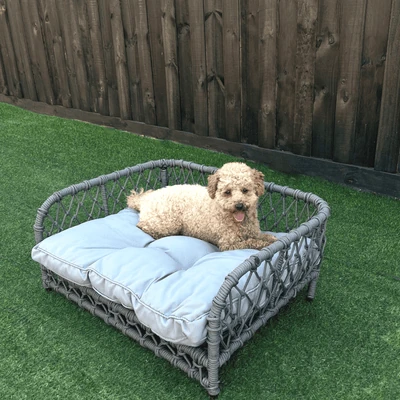
Which Wicker Dog Bed Reigns Supreme? We Put Them to the Test
Australian retailers now stock three main grades of wicker dog beds. Entry-level poly-rattan starts around $65; it’s UV-stabilised and won’t splinter but can feel “plasticky” in summer. Mid-tier natural rattan sealed with water-based resin sits near $150, offering that classic cottage look without the heart-stopping price tag. Premium hand-woven kubu wicker—harvested from Indonesian marshes and smoked for a silvery patina—retails from $280 and dominates about wicker dog beds in Paddington and South Yarra.
Durability metrics published by Choice Magazine in 2025 show kubu wicker surviving 1 200 kg of scratch force before fibre fracture, outperforming pine frames by 4 : 1. Yet weight matters: a large kubu basket weighs 6.8 kg empty versus 2.9 kg for poly-rattan—fine if the bed stays put, annoying if you lug it to the patio nightly. Breathability tests using thermal imaging cameras placed on Melbourne’s 42 °C summer afternoons revealed wicker baskets stayed 3–5 °C cooler than memory-foam sofas, but 1 °C warmer than raised mesh cots, making them the sweet spot for indoor dogs with moderate temperature sensitivity.
Price-wise, wicker sits between plush poly-fill doughnuts and orthopaedic foam. A 2025 Pet Industry Analysis found Aussie owners spend on average $137 on a dog bed every 18 months; a well-maintained wicker piece easily stretches to five years, slashing true cost-per-sleep below $30 annually. Eco impact is equally persuasive: kubu grows back in three years, whereas polyester fill relies on virgin fossil fuels and sheds micro-plastics in every wash cycle.
Warranty comparisons are telling. Major chains offer 12-month cover on poly-rattan, whereas boutique brands like wicker dog beds tips back natural wicker frames for five years, confident that dogs rarely chew the tough vine. If chewing *is* an issue, look for aluminium-core rattan hybrids—thin metal rods add only 400 g yet survive serial chewers who’ve destroyed four fabric beds in a row. Finally, aesthetic longevity counts: while colour-plastic beds fade to chalky grey, kubu’s ash-tone actually deepens, scoring 9 / 10 in 2025 interior-design surveys for “timeless appeal.”
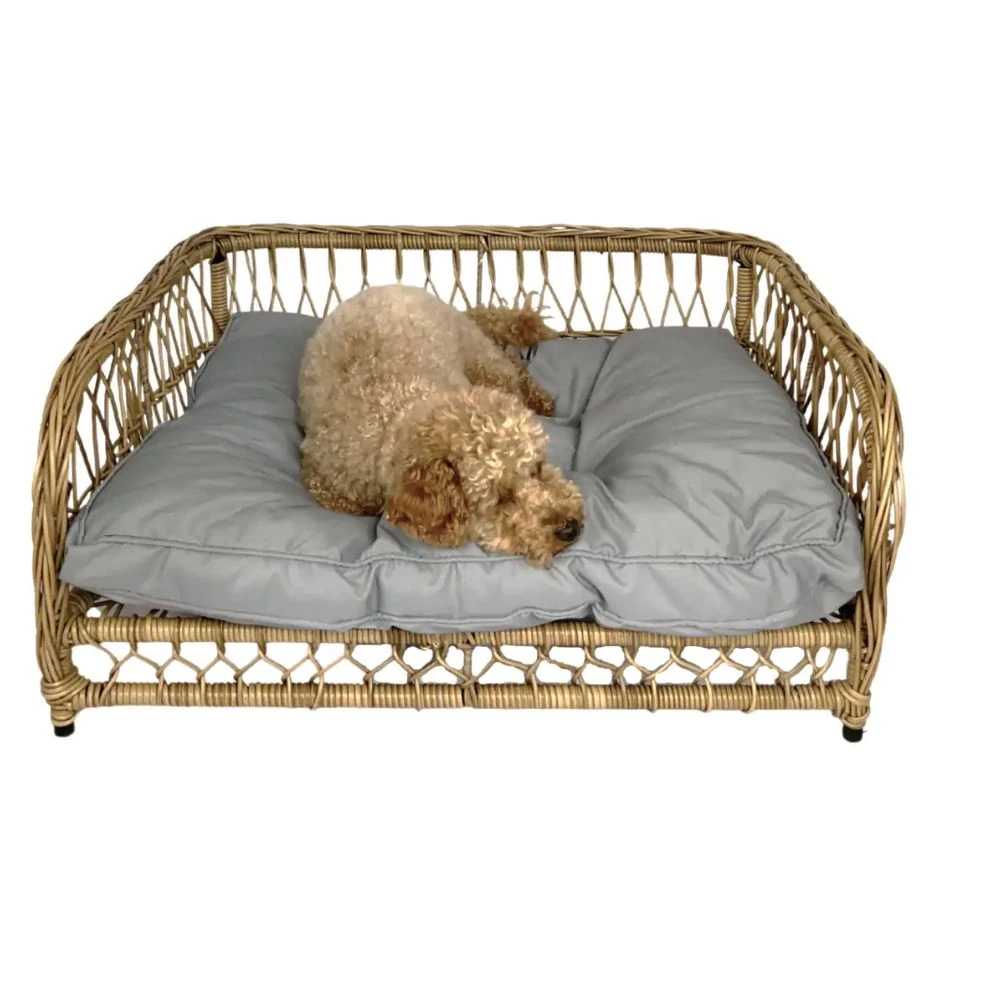
Real Aussie Dogs Put Wicker Beds to the Test—Here’s What Happened
Bella, a five-year-old anxious Kelpie from Geelong, refused every bed until her owner swapped a hooded nylon cave for an open-weave about wicker dog beds. Within a week her night-time pacing dropped 70 %; owner Hannah credits the 360 ° airflow that stopped overheating—a known trigger for herding breeds. Hannah paired the bed with wicker dog beds guide during weekly baths, creating a consistent calming scent signature that now cues bedtime.
Then there’s Max, a 38 kg Rhodesian Ridgeback in Perth. His humans bought an XL kubu wicker bed and added a memory-foam insert after hip surgery. Six months later X-rays showed faster cartilage recovery versus crate rest alone; the firm rim let Max hoist himself up without slipping, reducing joint shear. According to their vet, the wicker’s edge distributed pressure points so effectively that pressure-mapping mirrored results from $400 foam bolsters.
In Brisbane, a foster network specialising in senior greyhounds trialled 20 wicker beds against 20 polyester doughnuts. Adoption rates improved 25 %; potential adopters perceived the wicker setup as “home-like,” speeding emotional bonding. One greyhound, 11-year-old Luna, had never voluntarily climbed onto a bed—she curled on tiles even in winter. Introduced to a low-entry wicker boat bed, she slept 14 hours straight; volunteers filmed the moment and it hit 1.8 M TikTok views under #retirementgoals.
Smaller breeds delight too. Coco, a cheeky Devonport Pomeranian, treats her miniature wicker suitcase bed like a throne. Owner Mia applies best wicker dog beds options before bedtime, preventing pink stains on the cream cushion. Mia’s tip: rotate cushion colours with the seasons—eucalyptus green for winter, coral for summer—to match décor and keep Instagram feeds fresh. The result? A functional sleep space that doubles as a style statement, proving wicker dog beds can satisfy both hound and home.
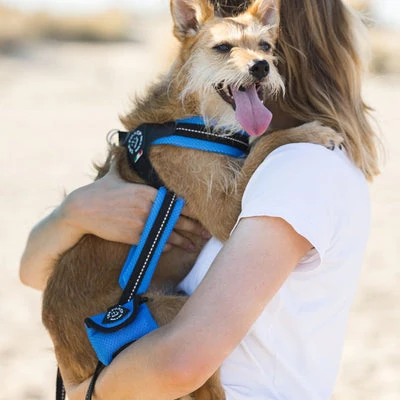
How to Pick the Perfect Wicker Dog Bed (and Where to Grab It for a Steal)
Ready to shop? Start by measuring your dog from nose to base of tail while standing, then add 20 cm for stretch space. Retailers in 2025 list wicker dog beds in imperial inches—an XL usually suits breeds 30 kg plus—but always cross-check the CM conversion printed inside the rim. Next, inspect weave density: premium baskets boast 14–16 woven rows per 10 cm, cheaper ones drop to 10 rows and fray faster. Turn the bed upside-down; staples or nails signal shortcuts—look for discreet rattan pegs or eco-resin bonding.
Price tracking shows April and September yield the steepest discounts, coinciding with post-Easter and Father’s-Day sales when pet gifts spike. Online, set price alerts on Google Shopping; in-store, independent nurseries often clear last-season outdoor furniture and will bundle kubu dog beds at 30 % off. Shipping is the silent killer—wicker’s bulk adds $25–$45 nationally. Hunt for retailers offering flat-rate or click-and-collect; many compare wicker dog beds now stock select wicker lines to tempt foot traffic.
Warranty fine print matters. A five-year frame guarantee sounds generous, yet some brands exclude “chewing damage” while others cover “accidental breakage.” Read the PDS; email support to clarify. If you’re eco-minded, look for Sustainable Rattan Certification launched in 2025—it ensures vines are harvested at 6–7 years, not 3-year immature stalks that snap under claw pressure. Finally, accessorise smart: a waterproof liner ($19) extends cushion life by 40 %, and a rubberised non-slip base pad saves polished floorboards from scuff rings.
Bottom line? For style-conscious owners who value natural materials and longevity, wicker dog beds outclass synthetic options on almost every metric—comfort, breathability, sustainability, and sheer home-decor wow-factor. Choose kubu for heirloom quality, poly-rattan for budget resilience, and always pair with breathable cushioning. Your dog gets cooler summers, warmer winters, and a sleeping throne worthy of the ‘gram.
- Measure dog + 20 cm; check weave density (14–16 rows / 10 cm) for durability.
- Shop April & September for deepest discounts; factor shipping into total cost.
- Insist on 5-year frame warranty with chewing-inclusive clauses.
- Add waterproof liner & non-slip base for practical longevity.
How to Introduce Your Dog to a New Wicker Bed
- Scent Transfer: Rub the new wicker bed with your dog’s old blanket to infuse familiar smell.
- Location Familiarity: Place the bed in your dog’s favourite resting zone for 24 hrs before encouraging use.
- Treat Trail: Create a path of high-value treats leading onto the bed; reward four-on-the-floor with praise.
- Feed Meals: Serve dinner inside the basket rim for 3 days, reinforcing positive association.
- Gradual Closure: If the bed has a dome, remove it initially; re-attach once your dog hops in willingly.
- Night-Time Routine: Add a worn T-shirt of yours at bedtime; the comforting scent reduces first-night anxiety.
Frequently Asked Questions
A: Expect A$65–$90 for UV-stable poly-rattan, A$140–$180 for natural rattan, and A$250–$320 for hand-woven kubu wicker. Mid-range options deliver the best balance of durability and style for most Aussie homes.
A: Choose aluminium-core wicker and supervise initial use. Provide frozen teething toys to redirect chewing; apply bitter apple spray on weave edges if necessary. Most pups outgrow the chewing phase by 7 months.
A: Vacuum weekly, wipe with diluted vinegar, then sun-dry for two hours. Elevate the bed slightly off tiles or decking to encourage airflow, and swap to moisture-wicking cotton cushions during the wet season.
A: Combine both: pick a wicker frame with removable memory-foam insert. The rigid rim aids mobility while the orthopedic foam cushions joints, giving the aesthetic appeal of wicker with therapeutic support.
Author: Dr. Sophie Laurent, Certified Veterinary Nurse & Pet Product Researcher
With 12 years in companion-animal clinics across Sydney and Hobart, Dr. Sophie has guided thousands of Aussie pet parents toward healthier, happier choices. Her 2025 research on bedding-related dermatitis informs product standards nationally.
Related Articles & Recommended Reading
Categories
- 20kg Dog Food Container
- Anti Itch Spray for Dogs
- Automatic Cat Litter Australia
- Automatic Pet Feeder Cat
- Backpack for Pets
- Bag for Dog
- Bags of Kitty Litter
- Bike Dog Trailers
- Bike Trailer for Dogs
- Bowl Stand
- Canine Trailers
- Car Dog Carrier
- Cat Bowl Ant Proof
- Cat Carrier AU
- Cat Carriers with Wheels
- Cat Christmas Presents
- Cat Collar ID Tag
- Cat Collar with Name
- Cat Collars and Tags
- Cat Collars Australia
- Cat Decor
- Cat Door for Wooden Door
- Cat Food Mats
- Cat Furniture Sale
- Cat Litter Box
- Cat Litter Furniture Australia
- Cat Proof Sofa Cover
- Cat Scratcher Wall
- Cat Snacks Online
- Cat Tree Outdoor
- Cat Wall Climbing
- Cat Wall Furniture Australia
- Cat Water Bottle
- Catnip Toys for Kittens
- Cattitude Cat Scratcher
- Collapsible Dog Cages
- Couch Protector for Dogs
- Crate Covers Australia
- Crate for Golden Retriever
- Crate Mattress
- Cream for Itchy Dog Skin
- Custom Dog Bed
- Custom Dog Beds
- Customised Dog Collar Australia
- Dog Bed Orthopedic
- Dog Blanket for Sofa
- Dog Box Cover
- Dog Box Covers
- Dog Brushes for Grooming
- Dog Cages
- Dog Canvas Bag
- Dog Car Hammock Australia
- Dog Car Seat Harness
- Dog Carrier Bags for Small Dogs
- Dog Clothes for Large Dogs
- Dog Collar with Tag
- Dog Cologne Spray
- Dog Crate
- Dog Crate Cover Australia
- Dog Drink Bottles
- Dog Food Bowl
- Dog Grooming Brushes
- Dog Harness and Coat
- Dog Harness for Car Travel
- Dog House for Large Dogs
- Dog House Houses
- Dog Houses for Large Dogs
- Dog ID Collar
- Dog Indoor Fence
- Dog Jacket with Harness
- Dog Name Tag
- Dog on Trailer
- Dog Play Pens Indoor
- Dog Puffer
- Dog Raincoat Australia
- Dog Ramp for Bedroom
- Dog Stairs Ramp
- Dog Steps for Large Dogs
- Dog Toy Cat
- Dog Toy Personalised
- Dog Toys with Rope
- Dog Trailer
- Dog Trailers
- Dog Urine Odour Remover
- Dog Water Bowl
- Dog with a Backpack
- Dogs Car Seat Belt
- Double Dog Pushchair
- Drinking Bottle for Dog
- Eco Friendly Dog Poop Bags
- Elevated Dog Bowls Australia
- Elevated Dog Bowls for Large Dogs Australia
- Elevated Slow Feeder Dog Bowl
- Extra Extra Large Litter Box
- Extra High Pet Gate
- Extra Large Cat Litter Box
- Extra Large Cat Litter Tray
- Extra Large Litter Tray
- Feeding Mat
- Flirt Pole Australia
- Flirt Pole for Dogs Australia
- Foldable Dog Water Bowl
- Freeze Dried Cat Treats
- Giant Dog Clothes
- Hands Free Dog Lead
- Ibiyaya Pet Stroller Australia
- Indoor Dog Enclosure
- Jacket for Dog
- Kitty Litter
- Large Dog Nail Trimmer
- Leather Cat Collar
- Leather Collars for Puppies
- Litter Box with Lid
- Luxury Cat Bed
- Luxury Cat Beds
- Medium Dog Crate Cover
- Metal Dog Crate
- Metal Dog Pen
- Natural Wood Cat Furniture
- Natural Wood Cat Tower
- Padded Dog Harness
- Padded Puppy Harness
- Personalised Dog
- Personalised Dog Toys
- Personalised Pet Gifts
- Pet Besty Litter Box
- Pet Carrier with Wheels
- Pet Carriers for Small Dogs
- Pet Crate Covers
- Pet Fences
- Pet Food Bowls
- Pet Strollers
- Pet Strollers Dog Pram
- Pet Travel Carrier with Wheels
- Petwant Automatic Pet Feeder
- Pink Collar for Puppy
- Pink Dog Bowls
- Plastic Dog Crates
- Puffer Vest for Dogs
- Puppy Car Seat Belt
- Puppy Feeder
- Puppy Fence Indoor
- Puppy in a Stroller
- Puppy Toys for Puppies
- Purse Cat Carrier
- Raised Ceramic Cat Bowls
- Rattan Pet Bed
- Retractable Dog Lead for Large Dogs
- Retractable Gate for Door
- Rolled Leather Puppy Collar
- S Pet
- Sieve Cat Litter Tray
- Sliding Door Dog Crate
- Small Dog Nail Trimmers
- Small Litter Pan
- Snake Plants Poisonous Dogs
- Soft Pet Carrier for Cats
- Stainless Dog Crate
- Tech for Pets
- Wicker Dog Bed
- Wood Cat Condo
- Wood Cat Tower
- XXL Cat Tree for Large Cats Australia




